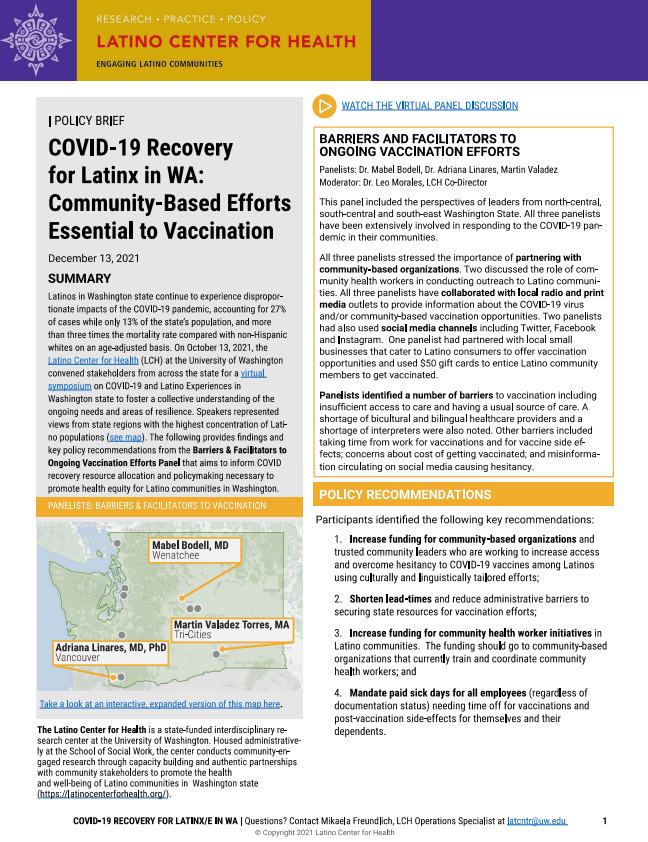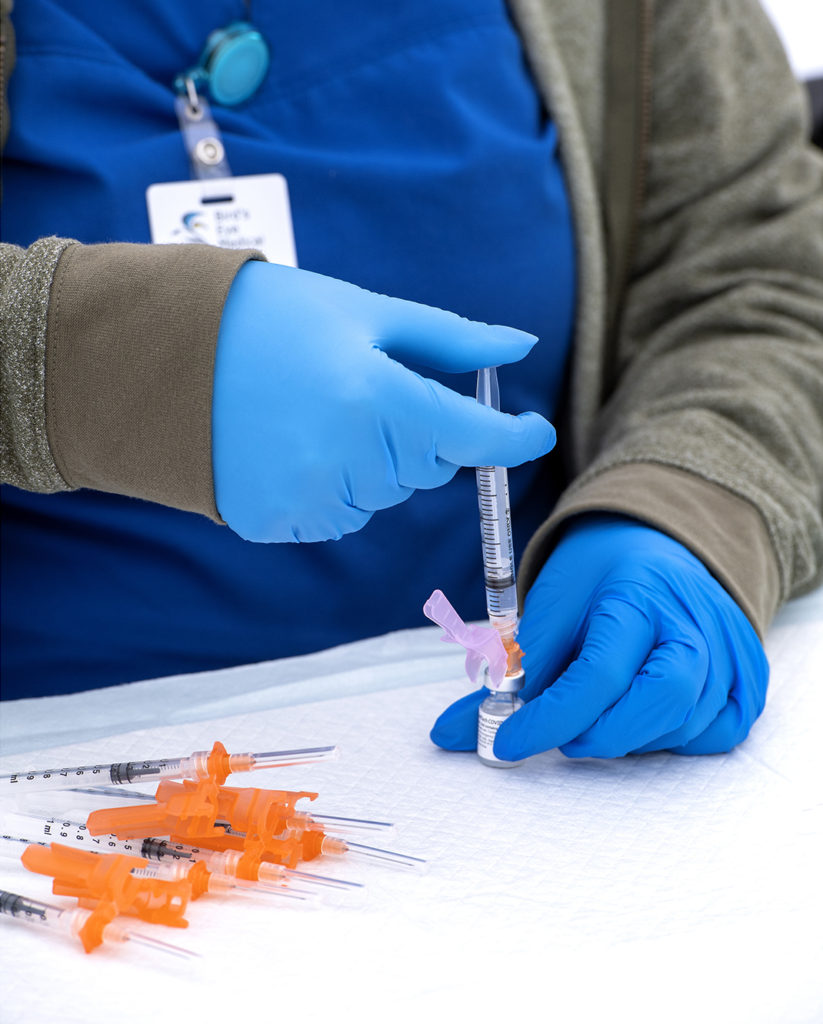The new brief from LCH shows that Latino men and women are experiencing disproportionate economic hardships, with Latina women facing higher unemployment rates and caretaking responsibilities.
University of Washington, Seattle: As part of a COVID-19 policy brief, the Latino Center for Health reports that many Washington state Latinos are not able to meet their basic needs, including healthcare, food and housing security.
For Latinas (Hispanic women), the unemployment rate has risen more quickly than that of Latinos (Hispanic men) throughout the pandemic. At the start of the pandemic, Latinas left the workforce at twice the rate of Latinos. Eight months later, this disparity doubled. In addition, compared to other women in the workforce, Latinas left jobs at a rate three times higher than white women and four times higher than Black women.
“Latinas are facing a disproportionate economic impact from the pandemic,” said Research Coordinator Miriana C Duran, MD, MPH. “In addition to experiencing high unemployment rates, having new childcare responsibilities at home due to school closures has forced them to leave the workforce at an alarming rate. Latinas need policies that support an equitable and inclusive post-pandemic recovery.”
As essential workers, many Latinos and Latinas have experienced significantly higher job loss, decreased work hours, and work-related income as compared with whites. According to the LCH survey study, 60 percent of all participants reported their household income was reduced due to the pandemic and 44 percent of the participants reported not being able to meet their basic needs.
“Latinos have suffered from losses and poor health due to COVID-19,” said Co-Author Aida Hidalgo-Arroyo, PhD. “They have faced dire personal and financial struggles despite their essential role in keeping the country and the economy moving…it is about time we support them back.”
LCH policy recommendations include:
- Expanding the federal unemployment benefits through Pandemic Unemployment Assistance and Emergency Paid Leave and Emergency Family and Medical Leave.
- Increasing the minimum wage and eliminating tipped minimum wage.
- Increasing relief funding for childcare.
- Enhancing worker rights and protections such as safety protocols for essential workers.
- Providing support to undocumented Latino and Latina immigrants.
This policy brief is part of LCH’s COVID-19 policy brief series. LCH researchers used data from the 2019 Census QuickFacts website and the WA State Department of Health COVID-19 Dashboard.
Other recommendations for increasing vaccine uptake among Latinos can be found in our recent policy briefs on vaccine hesitancy and COVID-19 information sources.



